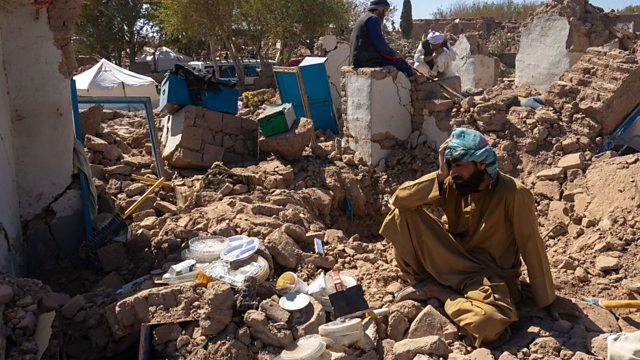Devastating earthquakes hit Afghanistan
Herat has not seen an earthquake for almost 1000 years but now, five have come at once. What factors lead to the disaster?
Lying atop a network of fault lines, where the Indian and Eurasian tectonic plates meet, Afghanistan is prone to earthquakes. However, the Herat area has not seen an event for almost 1000 years. As such, it was the least likely area to experience the series of devastating earthquakes and aftershocks which are reported to have killed thousands this week. Afghani seismologist Zekaria Shnizai discusses the factors which led to the disaster.
After a couple of delays, NASA’s Psyche mission is due to launch this Friday. It will map Psyche, a metal-rich asteroid orbiting the Sun between Mars and Jupiter. Project leader Lindy Elkins-Tanton's excitement for the project is infectious.
And can deep learning help us predict the next pandemic? Computational Biologist Debora Marks’ new tool, Evescape, can predict the most likely mutations a virus will gain under pressure. This could be a game changer.
Presenter: Roland Pease
Producer: Ella Hubber
Editor: Martin Smith
Production Co-ordinator: Jana Bennett-Holesworth
(Image: An Afghan man sits amid the rubble after a massive 6.3 magnitude earthquake strikes the city of Herat. Credit: Esmatullah Habibian / Getty Images)
Last on
More episodes
Previous
Broadcasts
- Thu 12 Oct 2023 19:32GMT���˿��� World Service except East and Southern Africa & West and Central Africa & ���˿��� Afghan Radio
- Fri 13 Oct 2023 04:32GMT���˿��� World Service Australasia, Americas and the Caribbean, South Asia & East Asia only
- Fri 13 Oct 2023 08:32GMT���˿��� World Service
- Fri 13 Oct 2023 12:32GMT���˿��� World Service
- Fri 13 Oct 2023 19:32GMT���˿��� World Service East and Southern Africa & West and Central Africa only
- Sat 14 Oct 2023 16:32GMT���˿��� World Service News Internet
Podcast
-
![]()
Science In Action
The ���˿��� brings you all the week's science news.


